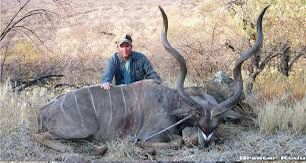THE theme of this year’s World Environment Day commemoration in Namibia calls on every Namibian to recognise and understand the negative impact of climate change, the Minister of Environment and Tourism said yesterday.
Minister Willem Konjore said the theme – ‘Go Green – Use Renewable Energy’ – also reminds Namibians to preserve the country’s ecosystems, resources and natural resources on which they depend. At the occasion held at the Habitat Research Centre in Katutura, Konjore said economic development in Namibia was underpinned by the quality and integrity of the natural resource base and Namibia could not afford to lose its environmental assets through inappropriate practices and degradation.”Our people, in particular our peasants, farmers and labourers, depend directly on our natural resources,” said Konjore.He said although it would seem to many that Namibia was not directly linked to the polar regions where glaciers are melting because of climate change, Namibia would not be left untouched by the consequences of melting glaciers and the destruction of polar ecosystems.Global warming, he said, could submerge Namibia’s offshore islands and affect its entire fishing industry and coastal economy.”Climate change and its effects could potentially become one of the most significant and costly issues that affect national development in Namibia,” he said.World environmentalists say rural people will be more vulnerable to climate change and it is essential that they are adequately informed about it.By 2100, computer-based models predict that temperatures will rise by an average of 3 to 6 degrees Celsius and sea levels will rise around 30 centimetres.Should this happen, said Konjore, droughts in Namibia could be expected to get more severe, burdening the farming and tourism industries with high costs.At the occasion held at the Habitat Research Centre in Katutura, Konjore said economic development in Namibia was underpinned by the quality and integrity of the natural resource base and Namibia could not afford to lose its environmental assets through inappropriate practices and degradation.”Our people, in particular our peasants, farmers and labourers, depend directly on our natural resources,” said Konjore.He said although it would seem to many that Namibia was not directly linked to the polar regions where glaciers are melting because of climate change, Namibia would not be left untouched by the consequences of melting glaciers and the destruction of polar ecosystems.Global warming, he said, could submerge Namibia’s offshore islands and affect its entire fishing industry and coastal economy.”Climate change and its effects could potentially become one of the most significant and costly issues that affect national development in Namibia,” he said.World environmentalists say rural people will be more vulnerable to climate change and it is essential that they are adequately informed about it.By 2100, computer-based models predict that temperatures will rise by an average of 3 to 6 degrees Celsius and sea levels will rise around 30 centimetres.Should this happen, said Konjore, droughts in Namibia could be expected to get more severe, burdening the farming and tourism industries with high costs.
Stay informed with The Namibian – your source for credible journalism. Get in-depth reporting and opinions for
only N$85 a month. Invest in journalism, invest in democracy –
Subscribe Now!






